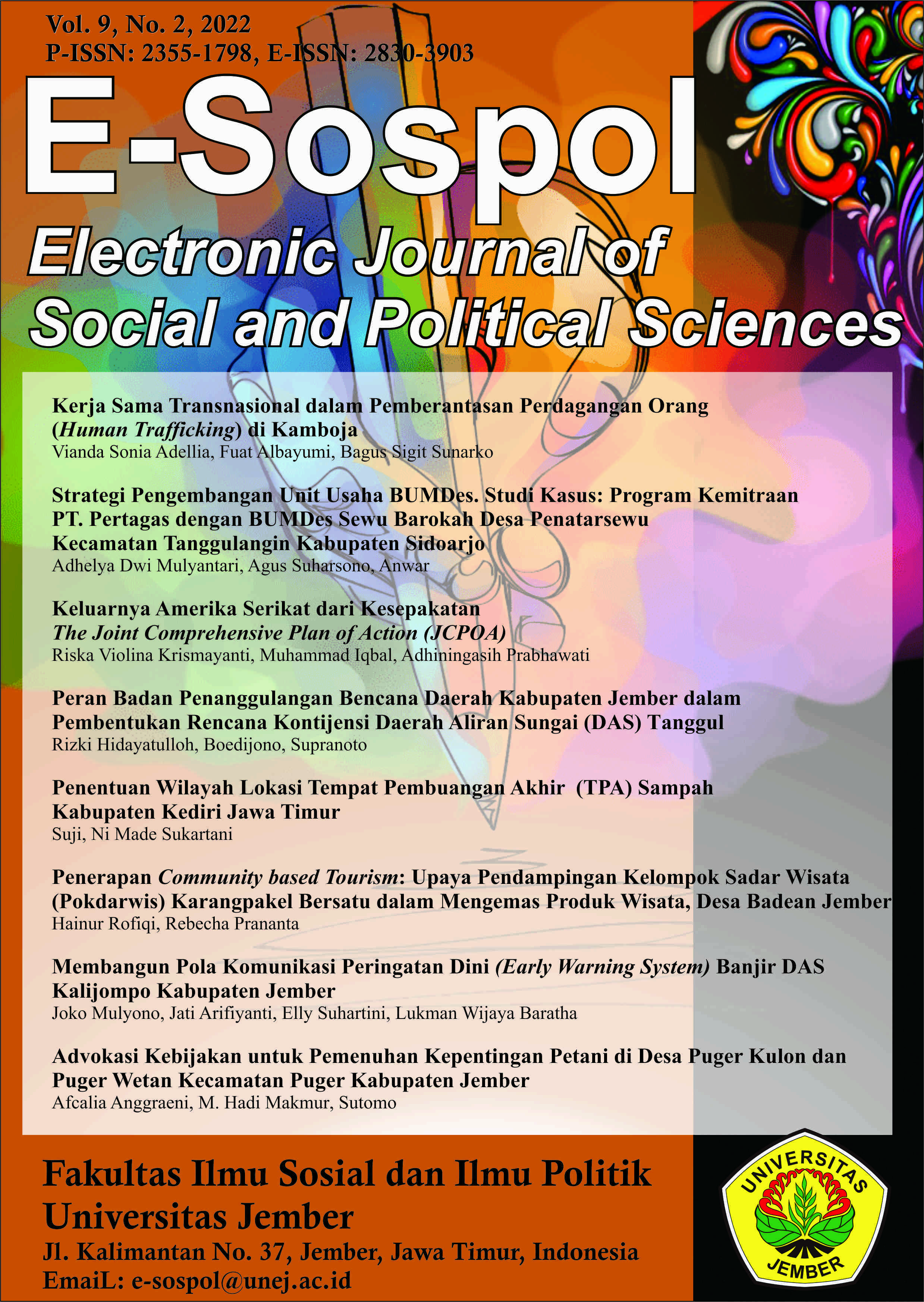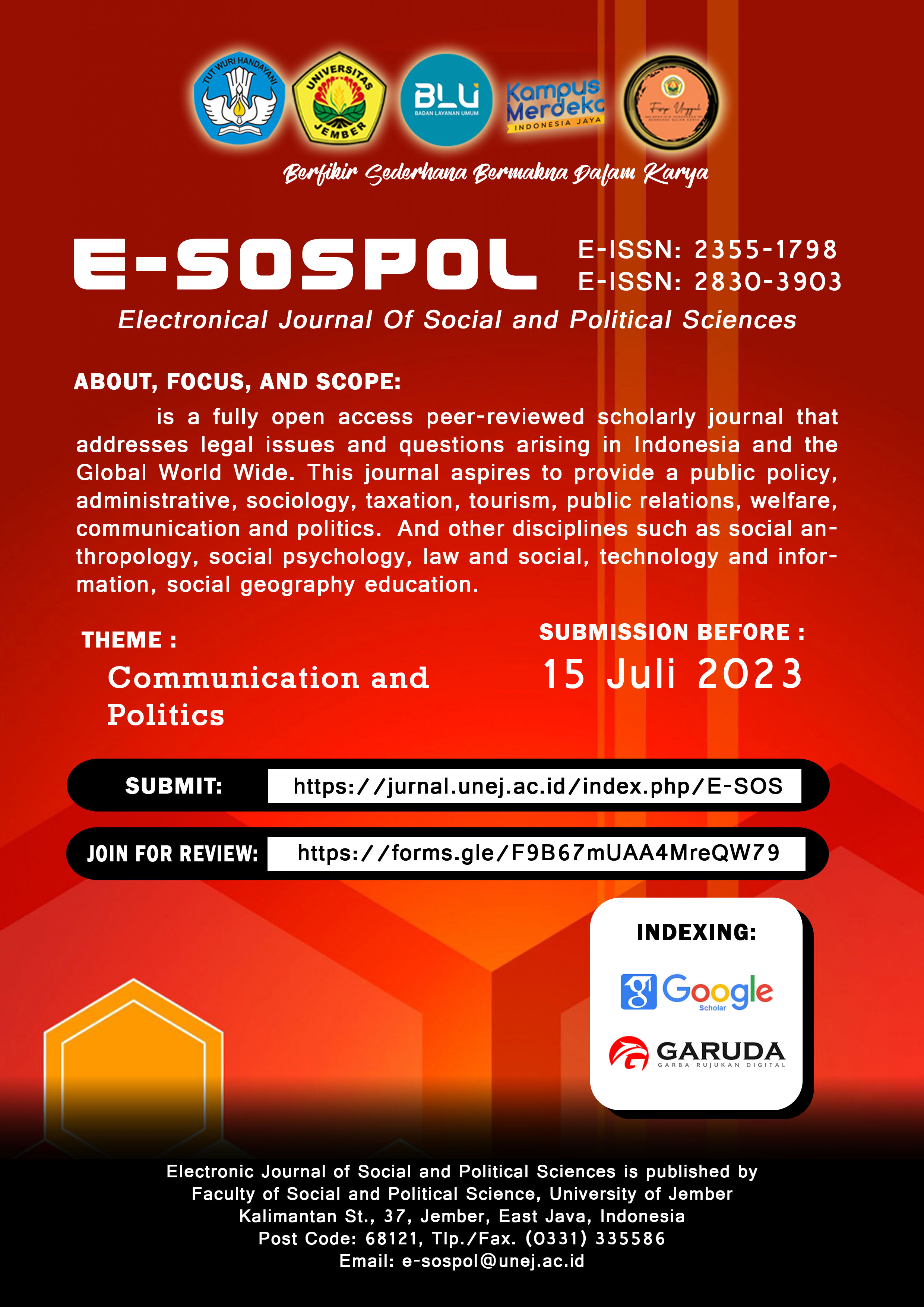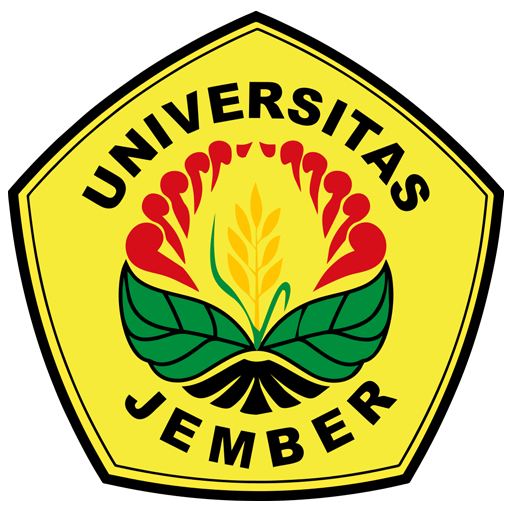Pelaksanaan Program PIK R dan Dampaknya bagi Remaja, Studi Deskriptif di Kampung Keluarga Berencana (KB) Desa Sukoreno Kecamatan Kalisat Kabupaten Jember
Abstract
Research is to describe the implementation of the Youth Information and Counseling Center (PIK R) program and its impact on youth. The PIK R program is one of several programs implemented by the Family Planning Village (KB) of Sukoreno Village, Kalisat District, Jember Regency. The government provides PIK R programs for adolescents to practice life skills and develop the quality of adolescents. The problem is how to implement the PIK R program and its impact on adolescents. The research method uses a qualitative approach. Purposive determination of informants. Data collection by interview, observation and documentation. After the data collected is analyzed and tested its validity. The results showed that the implementation of the PIK R program were: Peer Educator Training and Peer Counselors namely training for PIK R youth related to the KRR TRIAD covering sexuality, HIV and AIDS and drugs, Life Skill Activity in catfish cultivation, namely catfish cultivation as a routine activity for teens to improve life skills, Utilization of catfish as catfish nuggets is one of the efforts related to the creativity of PIK R teenagers in managing catfish into more interesting food. Impacts of PIK R for adolescents, namely: Psychological Impacts of changing adolescent bad habits in changing drunken behavior and the use of illegal drugs have now stopped, Social Impact eliminates anxiety for local residents as the environment is a place of influence so that better teenage change will have an impact on around it, Economic Impact helps parents increase family income through catfish cultivation life skill activities by teenagers PIK R.
Keywords: PIK R, Impact, Teenagers
Penulis yang mengusulkan naskahnya untuk dapat diproses penerbitannya pada e-SOSPOL dianggap telah menyetujui beberapa hal sebagai berikut:
1. Penulis tidak dapat menarik naskah yang telah usulkan untuk diproses hingga mendapat jawaban dari Ketua Dewan Penyunting atas status naskah artikel ilmiahnya (diterima atau ditolak untuk diterbitkan).
2. Penerbit tidak bertanggung jawab terhadap kasus plagiasi atas artikel yang terbit pada e-SOSPOL
3. Penerbit tidak bertanggung jawab atas data dan isi dari artikel yang diterbitkan pada e-SOSPOL, dan sepenuhnya merupakan tanggung jawab penulis.







.png)

